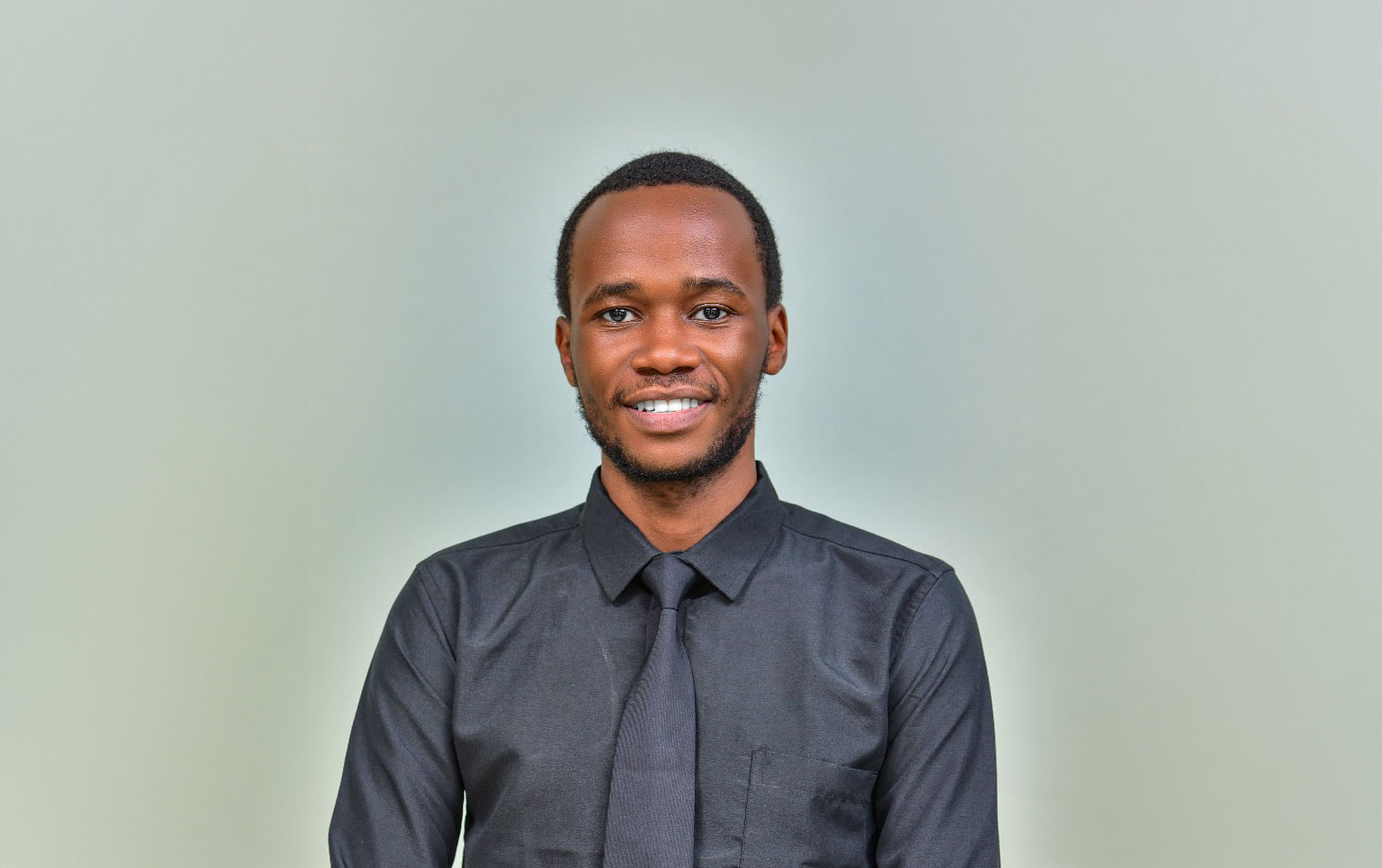Stay Ahead (Dedan Kimathi University Edition) [Part I]
Students graduating into the 21st-century world can almost be said to be graduating at a disadvantage. Information and technical skills taught in the first year of campus can easily become obsolete in a matter of months. In some instances, the curriculums have changed midway due to drastic changes in what the world needs.
Take chat GPT for instance. Knowledge from hundreds of years of research and books is now accessible in a matter of minutes, synthesized to give only the most relevant information. This wave of knowledge has come with multiple other forms of artificial intelligence.
Thus, for students in a local university in Kenya, it is critical to consider the question, “How do I stay ahead in a rapidly changing world?”
Lapid Leaders Africa had an opportunity to chat with students from the Dedan Kimathi University of Science and Technology to discuss this all-important question. This discussion is all the more important for any student in a local university in East Africa, considering that research shows that 60% of graduates from local East African Universities seem to be ill-equipped for the marketplace upon graduation.
Joining us as a guest speaker was Joseph Waruiru, a Lapid Leaders Alum from the class of 2018, and now the Team Lead Talent and Change and Cedar Group Africa. Joseph is also an alumnus of the University, having graduated from the University in April 2018.
Catch Part I of the interview we had with him below:
Interviewer: Let us start with introductions, how would you introduce yourself in relation to your work?
Joseph: I am a talent and change consultant at Cedar Group Africa. I work closely to support our clients in the structures and implementation of transformation engagements related to their businesses. I use my skills IT to develop change strategies and management plans for our different clients.
Interviewer: Tell us more about your relationship with Dedan Kimathi.
Joseph: Okay, so I actually studied at Dedan Kimathi University, starting September 2014 to 2017 December, then graduated on April 26, 2018. I studied Computer Science, Bachelor of Science in computer science at DeKUT. I was also the Christian Union chairperson during the year, 2017.
Interviewer: So how did you land your current job?
Joseph: That is a long story.
Something important to mention is that I knew about Cedar Group Africa through Lapid Leaders Africa.
To tell you about my job, I need to tell you about Lapid leaders first.
Interviewer: All right, walk us through. How did you know about Lapid Leaders?
I knew about Lapid while still in school, in my fourth year, my last semester. It was quite, busy you know. It is the last semester, you have projects, you have a lot on your mind, and I remember someone telling me about Lapid Leaders Africa. I was told it is a Leadership Organization that mentors young people. I knew I needed mentorship, so I signed up for the program.
Given that Lapid was in Nairobi, and I was in Nyeri, I used to commute from Nyeri to Nairobi every Saturday morning and go back to Nyeri every Saturday evening, or even on Sundays during weekends when we had Sunday activities.
I would say that Lapid Leaders Africa really helped me. It opened up my mind in terms of career, and the opportunities that are out there. As someone who did computer science, I had looked at my career prospects as only in technical skills, maybe software development and all. I was lucky that I realized the importance of soft skills. In Lapid Leaders, I found conversations that were helping me think broadly.
Interviewer: What happened after completing school?
Joseph: After finishing Lapid, I was volunteering as part of the Lapid Leaders Student Council. I think I was doing digital marketing and Graphic design then. I also completed my schooling at Dedan Kimathi and relocated to Nairobi.
Interviewer: You mentioned that you landed your current job through Lapid Leaders. How did that come about?
It was through the Lapid Community that I got my first opportunity, which was to be a project intern at Cedar Africa Group.
So many opportunities are shared in the Lapid Networks. So when this internship was shared, I had already been prepared for Job preparedness at Lapid. I sent my cover letter and CV, was called for an interview, and got the opportunity.
So I served in the organization as a project intern being my internship for six months. After six months, I was given a role as a business analyst to just leverage my research skills, and technology skills to see what the business can do better in terms of technology in talent recruitment. That was my introduction to recruitment.
Covid-19 came about when it was also my time to leave the organization. However, since I had played a big role in setting up a system of recruitment, I was called in again and told, “Let’s do this recruitment project together and see how that goes.”
That is how I ended up in recruitment. More recently I was promoted to team leader talent and change, now working with a team of three researchers reporting to me.
Interviewer: Enlighten someone here who may not know much about talent recruitment. What does your typical workday look like?
Joseph: My business is headhunting C-Suite talent. That looks like presenting job opportunities to people who are probably already happy where they are. Therefore, I also spend a lot of time on LinkedIn looking for talent, contacting them, and presenting job proposals. I also spend quite some time writing proposals for business development.
Interviewer: Great! Moving to today’s topic, what are some trends you have observed in the current job market that a university student should be aware of?
Joseph: I would like to start by saying that I think the easiest way for a student to identify trends is by observing the gaps in their field of study.
As a university student, you have big dreams, which is a good thing. However, one of the biggest trends I see is people starting businesses immediately after school because they believe they have great ideas, but they quickly realize that the world works differently from what they think.
Another trend I see nowadays is a need to up-skill for work. This is especially important in a rapidly changing work landscape. Anyone wise will be open to upskilling. So like in my case, I do not have a background in HR, but I work in HR. I have had to pursue a post-graduate diploma in HR so I can also be skilled in my work.
Therefore, something I would like to challenge everyone who is also transitioning out of school, or who has recently transitioned, is that it is important to have the conversation around reskilling.
Interviewer: What would you say is the role of programs such as Lapid Leaders, Africa in helping people prepare for the workplace?
Joseph: I think a program like Lapid Leaders Africa acts as a very good bridge to the workplace. That is what Lapid Leaders Africa did for me. I think I was just finishing my 4th year and had bright ideas and great things I wanted to do, but also at a level of naivety.
I find that ideas are held in very high regard at the university stage, which is great because universities are institutions where ideas are exchanged. However, when you come out to the world, it is time to convert ideas into implementation. And that’s where the work truly begins. There is no monopoly of ideas. You can have as many ideas as you can, but that is not the real work of converting ideas into action. What a Program like Lapid does is to stretch you. It is designed to teach you skills in an experiential way.
For example, my Lapid team and I were asked to look for our local MCA and interview them about Leadership. On the surface, the task looks simple. Until you start looking for them. You realize there are gatekeepers in communication; you have to be smart about it. You must package yourself nicely so that they can give you their time.
Therefore, I think that what an organization like Lapid does is that it helps you build the soft skills that you require to navigate the workplace now, but it also gives your community. You are able to get into a community of like-minded individuals who also want to do great things and this community is not only of your peers, there are also people who are ahead of you. There are alumni, and there are mentors. You have very deep networks with easy access. Opportunity in terms of skilling in business could just be lying with individuals within the network as it happened with me.
There you have it folks, from the Guest Speaker himself. The support of a community such as Lapid Leaders Africa has accelerated his personal and professional growth.
In the second and last part of this insightful interview, we shall look at an all too familiar challenge young people are facing, “I want to make it alone, and make it fast.” What does the guest speaker have to say about that? What is the role of mentors in helping us thrive in a VUCA World?
Stay tuned!
Interview Conducted and Reported by Risper Wanja, Growth Associate at Lapid Leaders.



